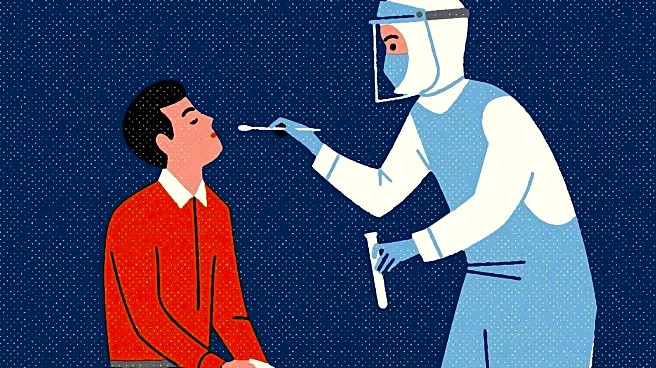What is the story about?
What's Happening?
A study by the Florey Institute of Neuroscience and Mental Health has found that COVID-19 can cause changes in sperm that may impact offspring behavior. Using a mouse model, researchers observed that male mice infected with SARS-CoV-2 before mating produced offspring who exhibited higher levels of anxiety-like behaviors. These changes were linked to alterations in non-coding RNA in sperm, which play a key role in regulating gene expression. Female offspring showed significant changes in gene activity in the hippocampus, a brain region critical for anxiety and mood regulation. The findings suggest the pandemic could have long-lasting effects on future generations.
Why It's Important?
The study raises important questions about the long-term consequences of COVID-19 beyond those directly infected. If similar effects occur in humans, millions of children could be impacted worldwide, with potential implications for mental health and development. These findings underscore the importance of understanding COVID-19 not just as an acute illness but as a factor that may influence reproductive health and the well-being of future generations. The research highlights the concept of epigenetic inheritance, where environmental factors, including viral infections, can alter molecular information in sperm, potentially influencing the next generation without altering the DNA sequence itself.


















